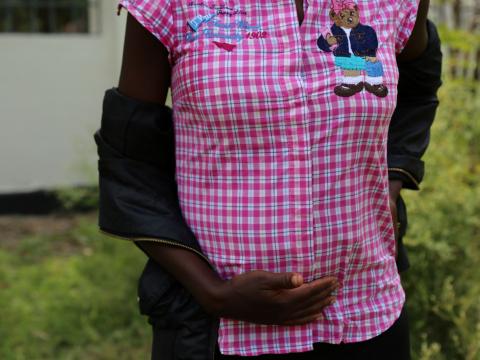The Silent Influence of Air Quality on Your Child’s Health

As parents, we often focus on providing our children with the best nutrition, education, and emotional support. But there’s an invisible factor that can have a profound impact on their health—air quality. Whether it’s the air they breathe indoors at home or outside while playing, the quality of air can affect your child’s respiratory health, cognitive development, and overall well-being.
Yet, the dangers of poor air quality often go unnoticed, silently affecting our children’s lives. Let’s delve into how air quality impacts child health and what you can do to ensure the air your child breathes is as clean and safe as possible.
Indoor air quality
Indoor air quality is often overlooked, but it’s where children spend most of their time, making it a critical aspect of their health. Common indoor pollutants include dust mites, pet dander, mold, and volatile organic compounds (VOCs) from household products and furnishings. These pollutants can trigger allergies, asthma, and other respiratory issues in children. Young lungs are particularly vulnerable to these irritants, and prolonged exposure can lead to chronic respiratory problems.
Moreover, poor indoor air quality isn’t just about respiratory health—it can also affect your child’s cognitive development. Studies have shown that children exposed to high levels of indoor air pollutants may experience reduced cognitive function, including lower attention spans and slower learning abilities. This is because the brain, especially during its formative years, is highly sensitive to environmental toxins.
Outdoor air quality
Outdoor air quality is equally important, especially for children who love to play outside. Pollutants such as particulate matter, nitrogen dioxide, and ground-level ozone, primarily from vehicle emissions and industrial activity, can pose serious health risks.
Children exposed to these pollutants are at an increased risk of developing asthma, bronchitis, and other respiratory conditions. Additionally, long-term exposure to poor outdoor air quality has been linked to developmental delays and behavioral issues in children.
Given the significant impact of air quality on child health, it’s crucial for parents to take proactive steps to improve the air their children breathe. Here are some practical tips:
Keep your home well-ventilated: Ensure that your home is well-ventilated by opening windows regularly to allow fresh air in and reduce the concentration of indoor pollutants. However, be mindful of outdoor air quality, especially during high pollution days.
Use air purifiers: Consider investing in a good-quality air purifier with a HEPA filter for your child’s bedroom or main living areas. Air purifiers can effectively remove airborne particles, including dust, pet dander, and pollen, providing cleaner air for your child to breathe.
Choose non-toxic household products: Opt for natural, non-toxic cleaning products, paints, and furnishings to reduce the amount of VOCs and other harmful chemicals in your home.
Monitor outdoor air quality: Keep an eye on the air quality index (AQI) in your area, especially on days when pollution levels are high. Limit outdoor activities during these times and encourage indoor play instead.
Plant indoor greenery: Houseplants like spider plants, peace lilies, and aloe vera can help improve indoor air quality by absorbing pollutants and releasing oxygen. Adding a few plants to your child’s room can create a healthier environment.
Air quality may be invisible, but its impact on your child’s health is undeniable. By taking steps to improve both indoor and outdoor air quality, you’re not only protecting your child’s respiratory system but also supporting their cognitive development and overall well-being.
As parents, we have the power to create a healthier environment for our children, one breath at a time. So, let’s make air quality a priority, ensuring that every breath our children take is clean, safe, and full of life.







